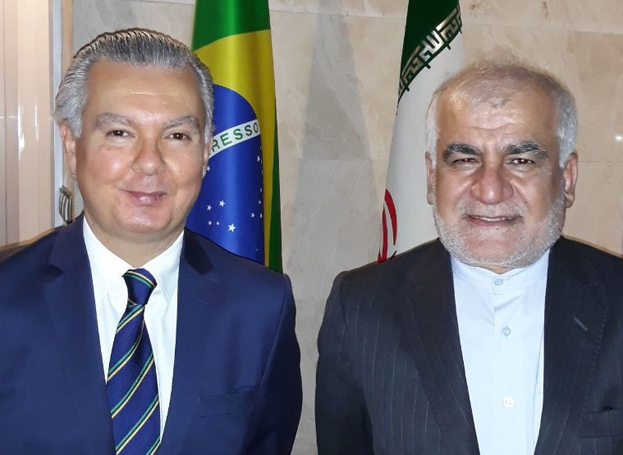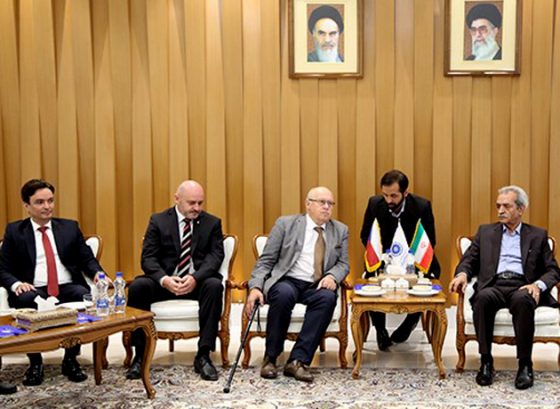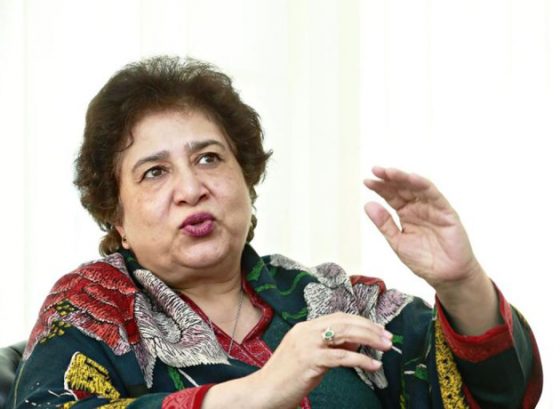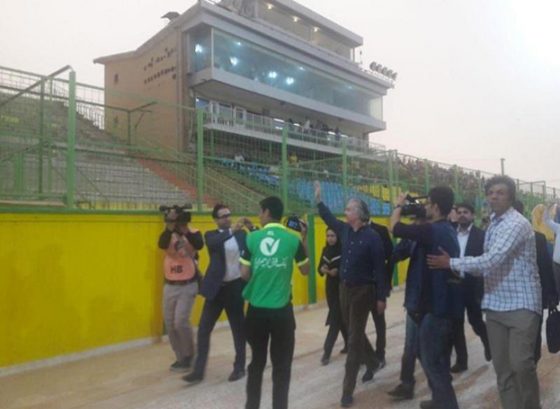Brazilian National Day marked in Tehran

Brazilian National Day was celebrated in a ceremony held at the residence of the country’s ambassador to Iran, Rodrigo de Azeredo Santos, in Tehran on September 12, AVA Diplomatic reports.
Every year on September 7, Brazil celebrates its independence from the United Kingdom of Portugal, Brazil and the Algarves which was declared on the same day in 1822.
However, for certain reasons, this year’s function was held a few days later.
In 1808, French troops commanded by Emperor Napoleon Bonaparte invaded Portugal as a retaliation for the Iberian country’s refusal to participate in the trade embargo against the UK. Fleeing persecution, the Portuguese monarchs transferred the Portuguese Court from Lisbon to Rio de Janeiro, then capital of Colonial Brazil. In 1815, Prince Regent John VI created the United Kingdom of Portugal, Brazil and the Algarves, elevating Brazil to the rank of kingdom and increasing its administrative independence. Brazil, Portugal, and Great Britain were the three major contributors to the Independence of Brazil, all three motivated by the circumstances peculiar to each.
Brazil’s independence was ultimately won through diplomacy after three years of war against Portugal.
The ceremony was attended by a number of top Brazilian and Iranian officials, representatives of the two countries’ private sectors, other ambassadors to Iran, and military attachés from the South American country.
Among the high-ranking officials from the two countries present at the ceremony were Brazilian Vice-Minister of Agriculture, Livestock and Food Supply Eumar Novacki and Director General for the Americas at Iran’s Foreign Ministry Mohammad Keshavarz-Zadeh.
Addressing the ceremony, de Azeredo Santos thanked the Iranian Foreign Ministry for the assistance it had provided his embassy in expanding relations between the two countries.
He added, “Brazil and Iran have a long history of friendly bilateral relations. More than a hundred years ago, in 1903, the two countries established diplomatic relations, which have always been based on mutual friendship, admiration and respect.”
Despite the geographical distance between the two countries, he added, both societies have a great deal in common.
“Brazil and Iran are blessed with vibrant multiethnic societies. Not only our passion for football unites us (both are qualified for Russia 2018 World Cup, by the way), but also the fact that we all value and appreciate hospitality, friendship and family.”
Since Iran’s 1979 Islamic Revolution, Brazil is proud to have built with the Asian Middle Eastern state a strong partnership in both economic and political fields, the Brazilian ambassador said.
“We are also very proud to have signed the 2010 Declaration of Tehran, which helped to replace the threats of confrontation with diplomacy and mutual respect, at a time of high pressure from the international community on Iran. Based on our tradition of defending the peaceful settlement of disputes, as well as in our firm defense of the right to use nuclear energy for peaceful ends, Brazil was on the side of Iran, even at a time of relative isolation.”
In that sense, Brazil was very happy with the successful signing of the Joint Comprehensive Plan of Action (JCPOA), which is a big success for Iranian diplomacy, he added.
“The implementation of the JCPOA, which we fully support, offers a very promising way for Iran’s international relations. Trade between the two countries has grown quickly over the past years, reaching $2.3 billion in 2016.”
In the past few years, the Brazilian envoy said, the two sides have witnessed an important increase in the number of trade and government missions from both countries.
“Last week, our Minister of Mines and Energy Fernando Coelho Filho paid a visit to Iran and had important meetings with Iranian authorities. The Brazilian Ministry of Industry, Development and Commerce Marcos Pereira is also scheduled to visit Tehran soon, in the context of our bilateral Economic and Commercial Commission.”
He said in the cultural sector, his embassy will hold a Brazilian film week in Iran in October, with the participation of the renowned director, Cacá Diegues, who is considered to be one of the founding fathers of Brazil’s modern cinema.
Speaking at the ceremony, Keshavarz-Zadeh said relations between Iran and Brazil are historical, which shows the two countries’ willingness to strengthen their balanced, growing and sustainable ties.
He added that as forerunners in South America and the Middle East, Brazil and Iran can act as links to facilitate expansion of each other’s foreign relations in respective regions.
“The two sides can improve political and economic relations in many fields and sectors including energy, transportation, aviation, shipping and making investments to begin joint production in Iran’s free trade zones. The large number of senior political and economic officials exchanged between the two states in the past four years is indicative of the two governments’ willingness to forge economic ties.”




